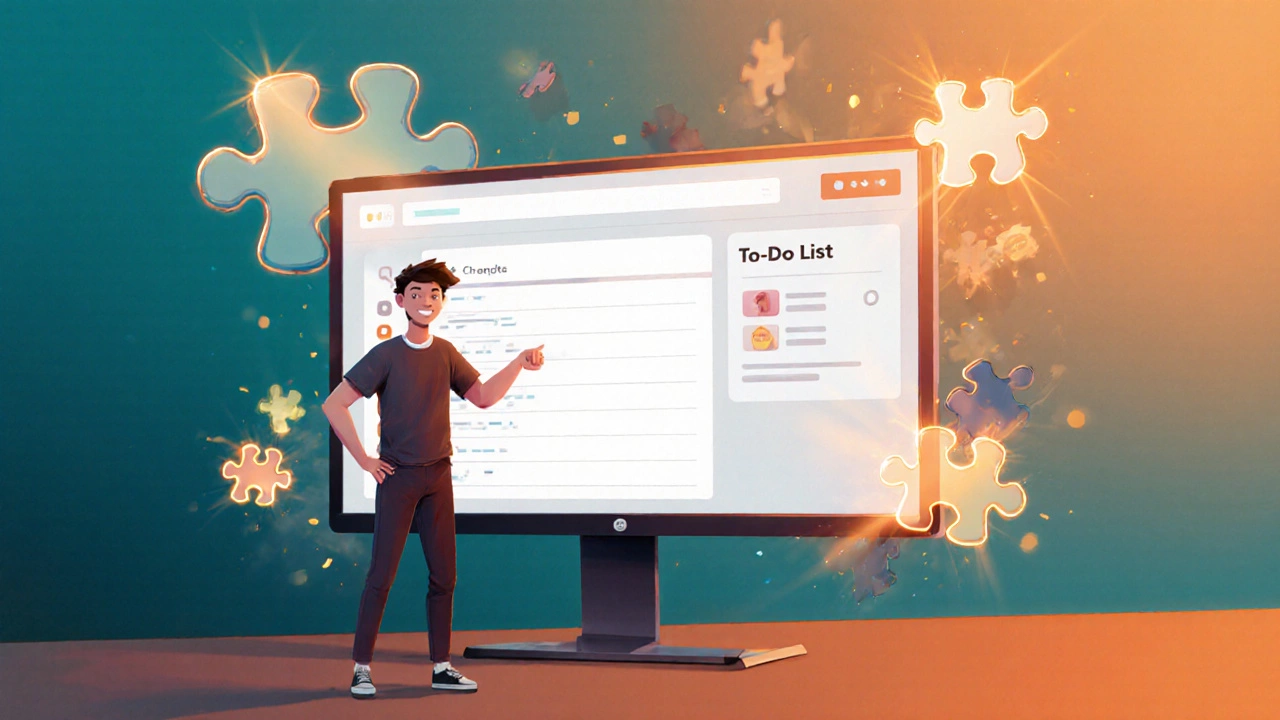Ever heard someone say, “I can’t code because I’m terrible at math”? You’re not alone. The belief that programming is a math‑only club holds many back, but the truth is far more flexible. Below we’ll break down why math isn’t a gatekeeper, what skills really matter, and how you can learn to code without a perfect math résumé.
What “bad at math” actually means
People use the phrase in many ways: struggling with arithmetic, feeling lost in algebra, or never enjoying geometry. Those feelings often stem from negative classroom experiences, not from an inability to think logically. The good news? Mathematics is a broad field that includes everything from simple counting to abstract proofs. Most programming tasks require only a slice of that spectrum-usually the kind of pattern‑recognition you already use when following a recipe.
Why coding isn’t a pure‑math discipline
At its core, Coding is about giving a computer a set of instructions it can execute.
- It’s a language problem: you write syntax that the machine understands.
- It’s a logic problem: you arrange those instructions so they produce the desired outcome.
- It’s a problem‑solving problem: you break a big task into bite‑size steps.
While advanced fields like graphics, machine learning, or cryptography demand heavy math, everyday web and app development rely on far less. Think of a simple “To‑Do” app-it uses variables, loops, and conditionals, not calculus.
Key mental skills that matter more than formulas
These are the real workhorses behind most code you’ll write:
- Logical Thinking - chaining “if‑then” statements.
- Computational Thinking - breaking problems into reusable pieces.
- Pattern Recognition - spotting repeated code structures.
- Debugging - spotting why something isn’t working.
If you’re comfortable with puzzles, video games, or even following a cooking recipe, you already have a head start.
Step‑by‑step plan to start coding without strong math
Here’s a practical roadmap you can follow this week:
- Pick a visual, block‑based language (e.g., Scratch or Blockly). These tools translate concepts like Variables and Loops into drag‑and‑drop blocks, letting you focus on flow rather than syntax.
- Complete a short tutorial that builds a simple game or animation. Pay attention to how conditions and loops control behavior.
- Switch to a beginner‑friendly text language (Python or JavaScript). Rewrite the same project using actual code. The transition highlights the same logical structures you already mastered.
- Practice a daily “code‑a‑day” challenge that lasts 15‑30 minutes. Websites like freeCodeCamp, Codewars, or LeetCode Easy tier give bite‑size problems that rarely need advanced math.
- When you hit a concept that mentions math (e.g., calculating an average), pause and look up a quick refresher. You’ll discover most formulas are straightforward arithmetic you already know.
Stick with this loop for a month and you’ll notice confidence building faster than any math textbook could.
Finding math‑friendly coding classes
Not all bootcamps and online courses assume high‑level math. Look for these signals when choosing a program:
- Curriculum focus: Emphasis on front‑end web development, UI/UX, or low‑code platforms.
- Teaching style: Uses visual aids, analogies, and real‑world scenarios instead of abstract formulas.
- Prerequisite list: If “Algebra II” or “Discrete Math” is required, consider a different course.
- Student testimonials: Search for words like “no math background” or “beginners welcome”.
Some reputable options (as of 2025) include:
| Course | Platform | Focus | Math Requirement |
|---|---|---|---|
| Web Development Bootcamp | Codecademy | HTML, CSS, JavaScript | None |
| Python for Everybody | Coursera (University of Michigan) | Python basics, data handling | Basic arithmetic only |
| Introduction to Game Design | Udemy | Unity, C# basics | None (visual scripting available) |

Common myths vs. reality
| Myth | Reality |
|---|---|
| “You must know calculus to code.” | Only specialized fields (e.g., simulations) need calculus. Most apps use basic arithmetic. |
| “All programmers are math geniuses.” | Diverse backgrounds flourish. Creativity and problem‑solving matter more. |
| “If I can’t do algebra, I’ll never debug.” | Debugging is about tracing logic, reading error messages, and testing-skills you can hone without algebra. |
Boosting the few math bits you’ll need
Even if you start without math confidence, a tiny amount of practice goes a long way. Focus on these three areas:
- Basic arithmetic: Adding, subtracting, multiplying, dividing - useful for counters, scores, and simple calculations.
- Understanding percentages: Crucial for UI elements like progress bars.
- Simple algebraic thinking: Solving for an unknown variable (e.g., x = total - used). Use online calculators or spreadsheet tools while you internalize the pattern.
Spend 10 minutes a day on free resources like Khan Academy’s “Math fundamentals” playlist. You’ll soon find the math feels like a toolbox rather than a barrier.
Key takeaways
- Most coding tasks require logical thinking, not advanced math.
- Start with visual, block‑based tools to master core concepts.
- Choose courses that emphasize projects over formulas.
- Address only the minimal arithmetic needed; you can learn those on the side.
- Confidence grows faster when you build real, visible results.
Do I need to know algebra to become a web developer?
No. Most front‑end work uses HTML, CSS, and JavaScript, which involve variables, conditions, and loops but rarely any algebraic equations.
Can someone with a non‑STEM background succeed in programming?
Absolutely. Many successful developers come from humanities, arts, or business fields. The key is curiosity, persistence, and practice.
What are the easiest programming languages for beginners?
Python and JavaScript are top picks because their syntax is clean, resources are abundant, and they can be used for web, automation, and data tasks without heavy math.
How much math do I need to know for building a simple game?
Usually just basic arithmetic and a grasp of coordinates (x, y positions). Game engines like Unity even let you use visual scripting to avoid writing formulas.
Are there coding bootcamps that guarantee no math prerequisites?
Yes. Many bootcamps market themselves as “no prior math required”. Look for programs that highlight project‑based learning and beginner tracks.
